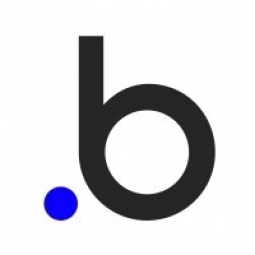Technology Category
- Application Infrastructure & Middleware - Event-Driven Application
- Platform as a Service (PaaS) - Application Development Platforms
Applicable Industries
- Cement
- Telecommunications
Applicable Functions
- Product Research & Development
Use Cases
- Inventory Management
- Time Sensitive Networking
Services
- Training
About The Customer
Beegle serves two key user personas: help seekers and help providers. Help seekers are individuals who need assistance with chores and errands at home and work. They can be anyone from busy professionals to senior citizens who need support with tasks such as grocery shopping, medicine pick-up, and hospital check-ups. Help providers are individuals, skilled or unskilled, who are registered and ready to help on an hourly basis. They can be people skilled in cooking, gardening, driving, plumbing, etc., or helpers who can perform tasks that do not necessarily require a technical skillset. Many of these help providers are people such as domestic help or office help who lost their jobs due to COVID-19.
The Challenge
Beegle, an India-based app, was founded by two professionals in product management and operation business who faced the challenge of finding a technical co-founder. They wanted to create a platform where people could find assistants to help with chores and errands at home and work. The goal was to match the needs posted with people, skilled or unskilled, who are registered and ready to help on an hourly basis. The challenge was to build this platform without any coding, and to accommodate rapid market reactions. They also wanted to provide opportunities for people such as domestic help or office help who lost their jobs due to COVID-19, by bridging the gap between them and those needing help.
The Solution
The solution was found in Bubble, a powerful no-code platform. Bubble allowed the Beegle co-founders to build their app without any coding, and to accommodate rapid market reactions. The app works by allowing people seeking help to browse through a directory of helpers, post a need specifying their requirements, and make a payment for the booking. A backend engine helps find the right match for them. People providing help can post their basic details and undergo training on customer interaction and COVID-19 safety guidelines. The co-founders have rolled out several design variations of their application to adapt to market reactions. They have also built a robust backend operations management system to serve incoming needs in a short period of time.
Operational Impact
Quantitative Benefit

Case Study missing?
Start adding your own!
Register with your work email and create a new case study profile for your business.
Related Case Studies.

Case Study
System 800xA at Indian Cement Plants
Chettinad Cement recognized that further efficiencies could be achieved in its cement manufacturing process. It looked to investing in comprehensive operational and control technologies to manage and derive productivity and energy efficiency gains from the assets on Line 2, their second plant in India.

Case Study
Vodafone Hosted On AWS
Vodafone found that traffic for the applications peak during the four-month period when the international cricket season is at its height in Australia. During the 2011/2012 cricket season, 700,000 consumers downloaded the Cricket Live Australia application. Vodafone needed to be able to meet customer demand, but didn’t want to invest in additional resources that would be underutilized during cricket’s off-season.

Case Study
SKT, Construction of Smart Office Environment
SK T-Tower is the headquarters of SK Telecom. Inside the building, different types of mobile devices, such as laptops, smartphones and tablets, are in use, and with the increase in WLAN traffic and the use of quality multimedia data, the volume of wireless data sees an explosive growth. Users want limitless Internet access in various places in addition to designated areas.










